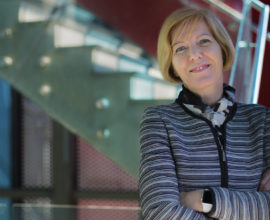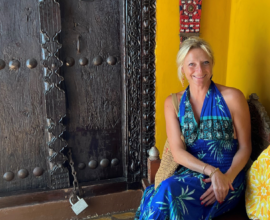Cyrille Glumineau
The sales-made man
![]() Reading Time: 11 minutes
Reading Time: 11 minutes
General Manager for Sales Central & Southern Europe at Reality Labs, a business and research unit – Meta
A graduate of the Saint-Nazaire ECG programme, now Audencia’s Bachelor in Management, 53-year-old Cyrille Glumineau (BACH 92), is the General Manager for Sales Central & Southern Europe at Reality Labs, a business and research unit of Meta (formerly Facebook), that produces virtual reality (VR) and augmented reality (VR) equipment and solutions.
He has held successive posts as a Sales Representative, Key Accounts Manager and Manager for Spain at Energizer, General Manager for Iberia then France at BaByliss, and Head of Southern Europe Neato Robotics. Cyrille Glumineau’s career journey clearly shows that a sales-related position remains a wonderful opportunity to flourish in the corporate world and attain the heights of the most attractive leadership positions.
Some leaders give the image of having taken the royal road to the corporate heights…
This is not the road I took. I snuck in through the side doors, slipping through with savvy, daring, hard graft and commitment.
Tell us more about this.
Coming from a rather modest family from the Vendée region of France, nothing predestined me for a long study path, which is as much to do with financial constraints as my coming from a practical background, hence in need of something more concrete. Where I’m from, people choose a trade as opposed to studies.
Yet, I had no clear career plan in mind. I was nevertheless aware that a good school could be a professional springboard: this is what led me to choose the ECG programme in Saint Nazaire and its bachelor’s degree course, open for enrolment directly after A-level studies. Located near my family home, the school formed part of the Chamber of Commerce Network and so, in the days before Internet, in my eyes this gave me a guarantee of quality and professionalism. And it did not disappoint: the training turned out to be second to none.
I carried out all my internships abroad, as was also the case when I left to further my training at Roubaix, in another of the schools forming part of the Chamber of Commerce Network – where I also met my wife.
Was this idea of an international career already on your radar in your younger years?
Well, yes and no! The international pull factor was very strong, maybe as I hadn’t got to travel at all as a child. Prior to joining Audencia, I had only ever lived within a 10-kilometre radius of my parents’ home. I would have been around 18 years of age the first time I went to Paris, and 20 years old the first time I took the plane. So, there again, nothing really predisposed me for a life of travel.
However, all at once, during my studies in Roubaix, specifically chosen for its international scope, I began to broaden my horizons and new opportunities started coming my way.
Following my end-of-studies internship, I received a job offer from a small bicycle accessories company, all the way out in Texas. This didn’t really match with my own personal career goals – a consumer goods business, preferably a strong brand, recognised in its market sector. Bicycle accessories didn’t quite measure up; however, I was incredibly fascinated with the US.
So, why this fascination for the United States?
For the culture, the way of life out there, its highways and shopping malls, all this vast consumer goods side. Nowadays this may be a bit of a cliché, even a bit scary, but back in the day, we only got to see the world through the lens of a television or cinema screen. So, yes, I’d have loved to have grown up Stateside in the 1960 and 70s.
The country has an “anything’s possible” dimension to it, which I find equally impressive and inspiring. And, when it comes to business, they have accomplished so much: they have navigated all the various twists and turns and have even got ahead of the game. This is especially true with the emergence of the tech giants.
This is quite astonishing: I have never lived in the United States, aside from during my internships, and yet I’ve come to realise that I’ve spent my entire career working for American firms, even to the point of joining one of these tech giants.
Indeed, although this would not end up being in Texas but rather at Energizer in Lille and then in Paris. So, how did this all come about?
Sadly, Texas fell through. I waited for my visa a whole nine months. I even married my partner to try and speed things up a bit, but it just wasn’t enough. We both ended up looking for jobs in France, a job more in line with my professional expectations and my desire to work in the mass-market consumer goods sector.
This is how I came to be hired by Energizer, as a travelling Sales Representative in the north of France, and then as a key Account Manager in Paris. Just for the record, my visa for the United States finally came through but arrived too late. As things were going well for me in my new role with Energizer, I had no intention of putting this on the line.
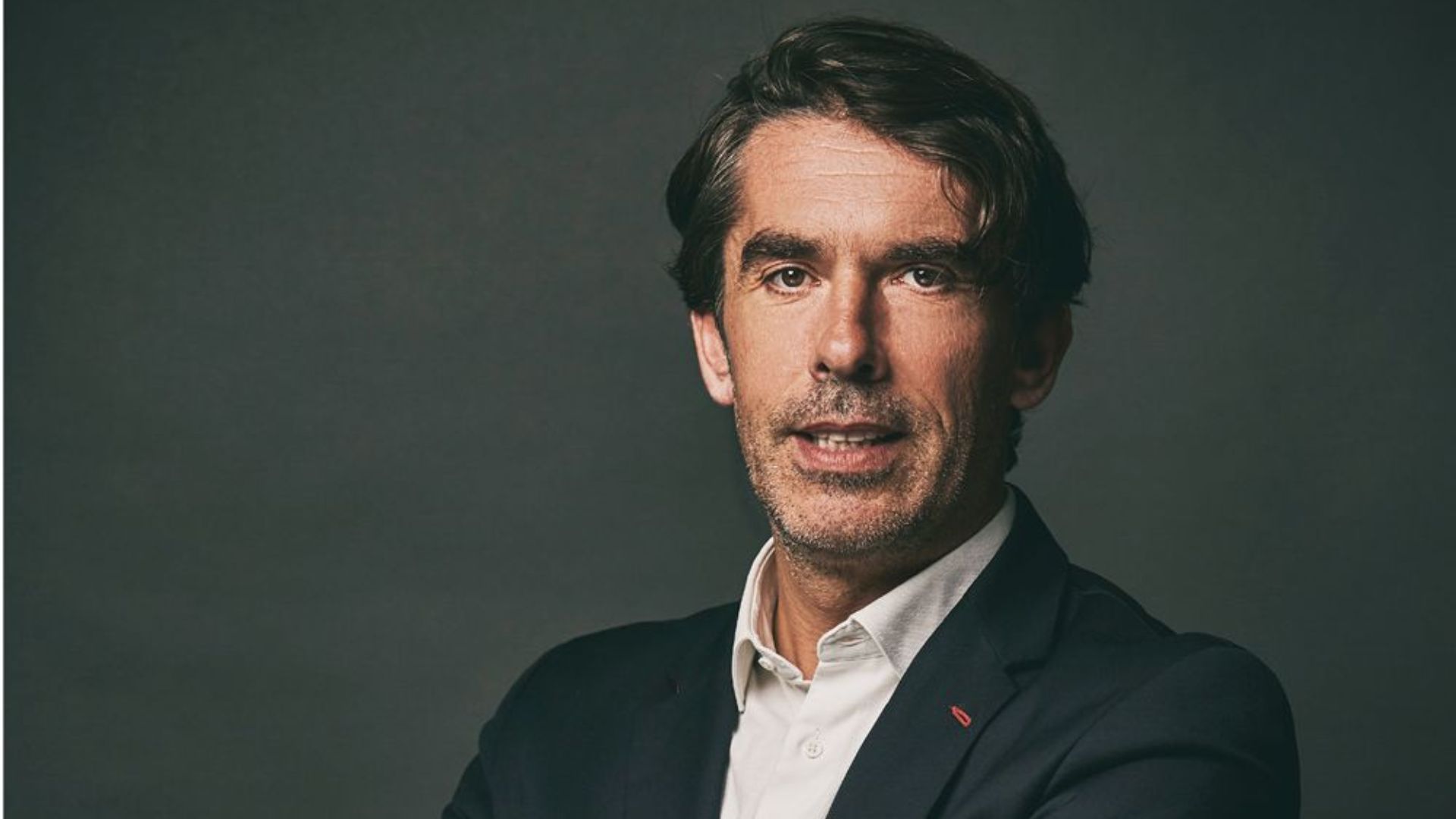
And yet, the sales sector is not always held in high esteem.
This is a mistake, in my view!
Positions in Sales and Finance allow you to access all the rungs of the corporate ladder, but given my academic background, I had a good deal more opportunities open to me on the business side rather than in finance.
I have since come to realise that the first ten years of a career remain decisive to the way a career unfolds: for this reason, it is important you make the right choices, favouring a position that offers good promotion prospects and in a company that accompanies this career advancement. Energizer undoubtedly had less of a “wow” factor than P&G, Kraft, and Co, but it had adopted the right governance codes: a highly structured organisation and significant investment in its young talent pool.
Thus, we were a group of ten young people to get spotted and trained up to become the new salesforce generation. This support provided a real opportunity, especially as this was accompanied by an inspiring team of managers, who made you want to surpass yourself and aim higher. This is what allowed me to make rapid progress, becoming first the national then the international Key Account Manager. And then go on to be offered the Spanish market! This would be the start of a whole new life for me.
Did you have to think it over?
Not for a second. We sold all we had and then, in the space of just a few days, we headed off to a country that was all-new to us, speaking a language we didn’t really know. Yet, the international pull was still there, bubbling under the surface, so this proved an unmissable opportunity for us.
Professionally speaking, I had a real sense of the incredible confidence people had entrusted me with by offering me this position: this was a clear sign that others believed in me and I found this highly rewarding.
On a personal level, I had the impression that my true life started the moment I set foot in Madrid. Right away, we sensed this feel-good vibe which many internationals in Madrid also testify to: the weather, the culture, and the ease at which you can connect with others. It took us no time to forge friendships and I don’t recall having any difficulties fitting in.
How would you describe those early days, settling into your new job in Madrid?
Like a fresh, clean page! I had it all to learn, especially the management side. It was a small team and then, little by little, we grew. My managers provided me with great support and I have this side to me that is very studious and rather like a model student. I work to succeed and obtain results, but also to prove to my bosses that they were right to back me. I believe this stems from my education, this need to live up to the trust others place in me.
So, during these first few years in Madrid, I gave it my all and I really loved what I was doing. However, I also have a challenge-seeker temperament: I need to keep things moving, to have new assignments, to spearhead and develop projects too. This is what I found appealing in the job offer I received from BaByliss, who headhunted me to set up a subsidiary in Spain and in Portugal. All of this from scratch, for a brand that was unknown in the Iberian Peninsula. Once again, I had a fresh, clean page and a brick-by-brick construction process to develop. I started out working alone in a tiny office, and then the business grew. We moved premises three times and, over the next five years, we went on to become the market leaders.
You said you would never leave Spain and yet here you are today, in Paris. How did this all come to be?
In fact, we left with a small child and a baby, and then we had our third child out in Madrid. After ten years, we were no longer ex-pats but French settlers, of those who stay forever.
Yet, jobwise, I was once again starting to feel a sense of routine setting in, with the impression that I was reliving the same old same old, day after day. Now, in 2013, in a Spain that had been severely hit by the “Subprime” crisis, changing jobs and company had all but become mission impossible.
So, when Conair, the parent company of BaByliss offered me a job in Paris, it was hard to turn down. Although I did give it a lot of thought! This was a huge business in France: it was the largest country, with the greatest number of employees. This was a decision based on logic. So, we returned to France even though, quite honestly, we felt more like we were arriving than coming back home.
Are Spain and France all that different?
Whilst they may have similar cultures, life in Spain is simpler and more relaxed. This comes across in the small things, such as the polite ‘vous’ form of address, Monsieur or Madame being de rigueur for children attending French schools, along with the codes of conduct which are slightly different for me in the company. But we got used to this and we are very happy now with our Parisian life.
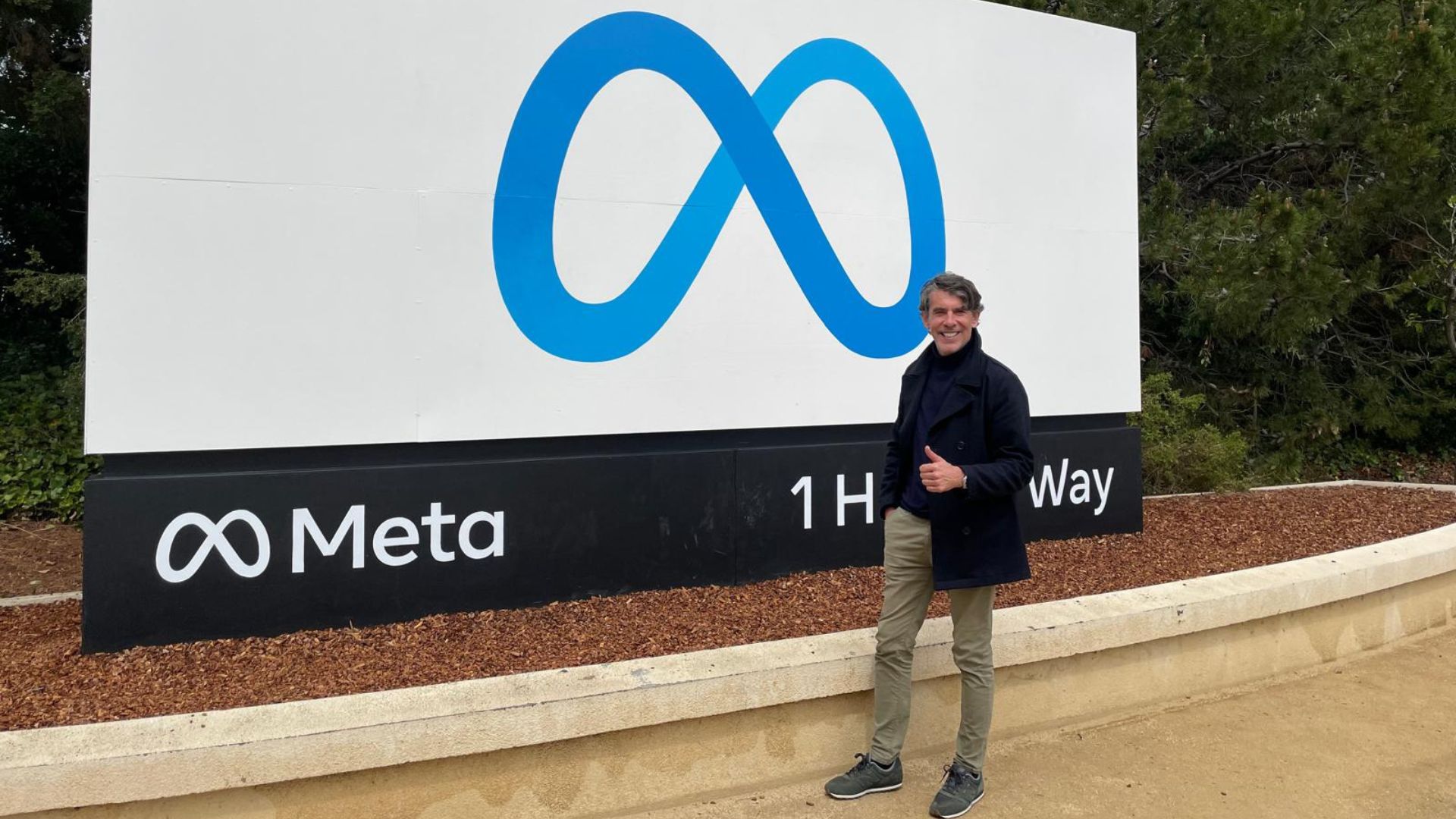
Two decade-long stints at Energizer and Conair, then all at once, the pace picked up. How would you account for this?
By being taken with a company and a sheer stroke of luck. First off, liking what I saw with Neato Robotics, a small American company, manufacturing smart systems for vacuum models, that now forms part of the Vorwerk group. I met up with them when, yet again, I felt the need for a change in my career and, right away, I was impressed with the management, the teams, and the company itself. The people there were quite brilliant and I had an incredibly rewarding experience working alongside them. It was whilst working at Neato Robotics that I first started to get into the world of innovation and collective intelligence. Here again, I could have remained for another decade had it not been for Facebook contacting me.
How did you make the leap from the mass consumer goods market, batteries, vacuum cleaners, and hairdryers, to working for a digital giant?
To be honest, I initially thought there had been some sort of mistake, since I knew neither digital nor the services. I am no digital native – far from it! This is rather an old-fashioned memory, but I can still perfectly recall the first-ever time I sent an email from my office to my wife: this was back in 1995. And two years later, the very first call I made from my car phone! As a consumer myself, I found this quite fascinating. Yet I didn’t see myself one day becoming one of the players in this digital revolution.
In fact, today in my work at Quest, I simply do what I’ve always done: bringing a product to market, working on its merchandising and in-store positioning, and promoting and increasing brand appreciation. We deliver virtual reality headsets, a product destined to become a mass-market consumer good in tomorrow’s world.
Moreover, it is quite uncanny to think that the tech giants, Google, Amazon, Meta, etc., have all expanded their business model, initially centred around services, to then start creating products, these well-known connected and smart devices that we hear so much of today.
Would you say we were on the verge of a new digital revolution?
Definitely! The third or the fourth, I’m not entirely sure which. We went from the computer revolution to that of mobile telephony and now, here we are headed towards the metaverse. When Facebook became Meta, announcing the next computing platform, the public didn’t really understand what was going on, and neither did they buy into it. However, this is okay as ultimately, all these revolutions met with a huge amount of criticism at the start: people see the drawbacks before they see the benefits. It was already like this with the invention of the train, you know!
But the truth of the matter is that we are creating a third dimension of communication and interaction, merging the physical with the digital, that has immense potential in terms of its application potential. For training, this is going to be incredible, for instance with this ability of extending access to all, bringing the world closer together, and connecting people to each other, etc.
What makes Meta different to the other companies?
In joining Meta, I got to add an extra dimension of inspiration and continuous learning that helps to revolutionise my approach to the profession and the world of work.
These companies that are reinventing business models and transforming the way we live, communicate, and work, are simply fascinating. This remains true whether we agree or not with this model, for that matter!
In-house, the company is extremely transparent, with a leadership team, including Mark Zuckerberg, who interact a great deal with the employees. Special attention is given to the staff: incredible offices, with a special focus on wellbeing and career development opportunities, the likes of which I’ve never come across anywhere else.
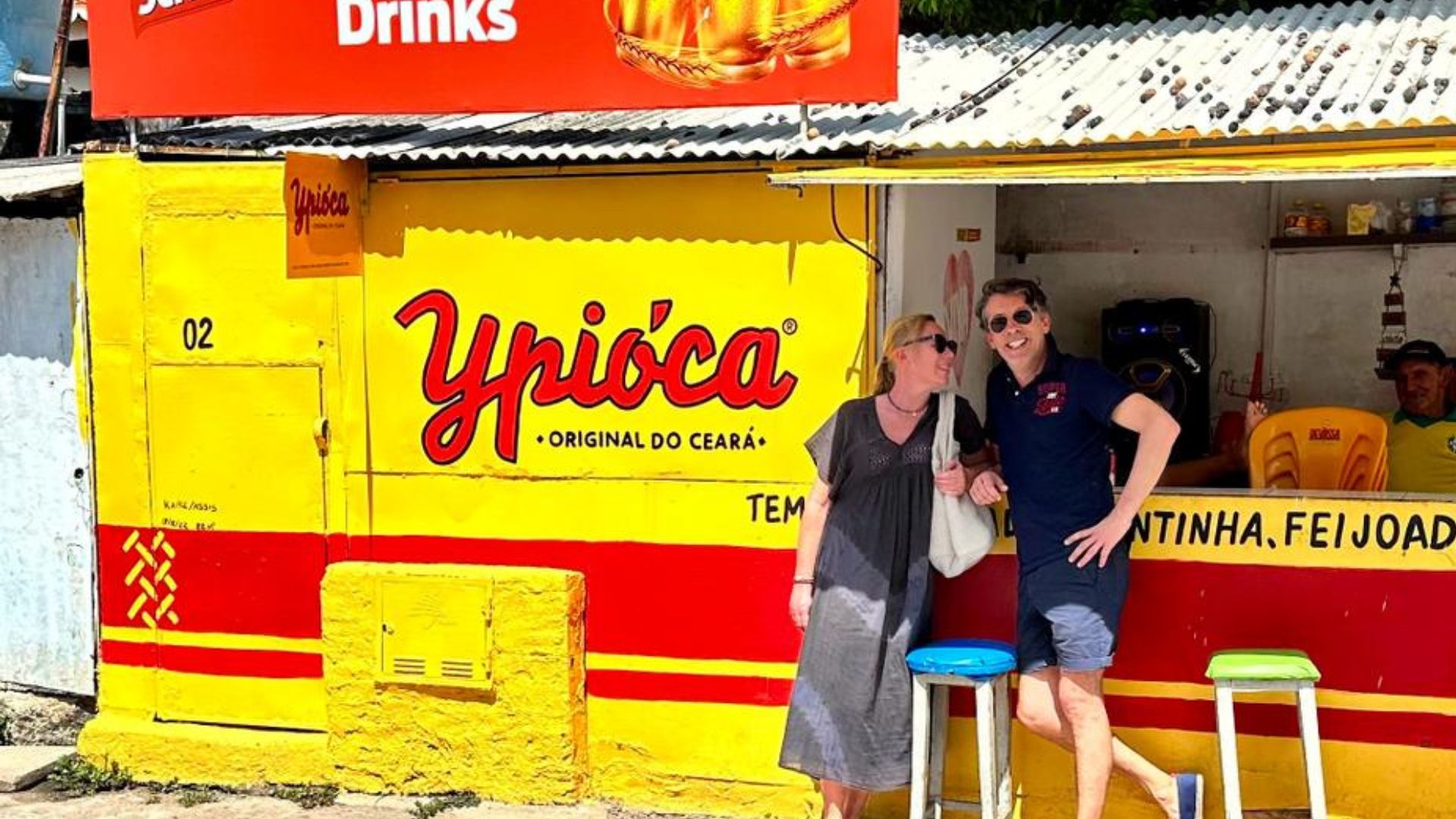
Are Meta and GAFA now the new Eldorados for students?
If I compare this to back in my day, when we would aspire to working for a firm like Procter, the GAFA tech companies are next level: they are constantly reinventing themselves and their colossal financial clout enables them to take on very big risks, and thus innovate and offer promotion opportunities like no-one else.
With their proven track record, growth, and very healthy business performance, these firms could so easily rest on their laurels, yet this is not the case: they continue investing millions into these long-tailed projects such as the metaverse. They have a vision and a genuine capacity to invest and maintain this over time.
Furthermore, these are companies constantly rewriting the codes of corporate culture, be that the dress code, the way they operate, or the workplace environment. These constitute veritable talent magnets, due to their financial clout of course but also since they wield an exceedingly high value proposition. And with the passing of time, the more talented gems they can amass, thus allowing everyone to progress and develop their skills, even those who are 53 years of age, like me.
Precisely, so with your wealth of experience, what advice would you like to share with our current students?
The same advice I give to my daughter, just starting out on her career: take nothing for granted, especially not destiny, and put in the work.
In practical terms, begin by working for a large company, which will allow you to learn how to structure yourself thanks to its methods, processes, and inspiring leadership. Have a boss who will be your mentor; a launch pad is a great asset in a career. Then, make sure to do your homework on the corporate culture and management stance before you sign.
Next, allow yourself time: avoid changing companies every couple of years or so, giving yourself time to get your feet under the table, put in the graft, and prove to the company they made the right decision.
Don’t expect everything to come from the firm, or from others, but rather earn what you get, by going after it and proving your worth and commitment. I believe we are always responsible for what we get, in the business world.
And for you, what would you like us to wish you?
To continue to marvel, to enjoy where I am now and to take pleasure in what I do. And most of all, to keep learning! I simply wish to carry on going to the office feeling motivated and amazed at what I see in the environment within which I operate.
